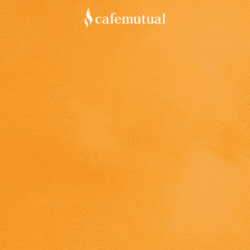Since you have been actively tracking the performance of mutual funds, will there be challenges in generating alpha and finding the right stocks to beat indices? Can active fund managers continue to beat benchmarks in future?
The Indian mutual fund industry is highly tilted towards active funds (97% share) versus passive funds (3%). Being a developing country, it continues to provide opportunity to generate alpha through active management. However, the share of passive funds has seen a sharp increase in recent years after the biggest retirement manager in the country, the Employees Provident Fund Organisation (EPFO), initiated investments into equity through exchange-traded funds (ETFs) in August 2015. The share of passive funds, which includes index funds and ETFs, has seen a rise to 3% in 2016-17, from 1.49% at the end of 2014-15. Within passive funds, equity-oriented ETFs have seen their share rise to 82%, from 45% at the end of 2014-15, primarily led by the inflows from EPFO.
In developed financial markets, such as the US, passive funds (including index and ETF funds) account for nearly 32% of the industry.
As the Indian industry evolves and matures, any dip in the outperformance of active funds, coupled with low costs associated with passive funds, could see their share increasing in the overall pie.
Most advisors make assumptions on return expectations to draft financial plan for their clients. Since the future is uncertain, and nobody knows how the industry will shape up, what is your advice on drawing up a reasonable return expectation from mutual funds?
Financial plans should be bespoke to the risk-return profile and investment horizon of the individual investor. This should include analysing his/her cash flow needs and incorporating all the visible financial goals in the long-term financial plan. This would aid the investor and advisor get a holistic view of the overall goals of the investor.
In terms of return expectation, a long-term historic analysis of the respective categories, preferably on a rolling basis, can be considered while drawing up reasonable return expectations.
Many investors generally invest by looking at past returns. How would you advise them?
One of the common mistakes investors commit during fund selection is to solely consider the recent past performance. This is not a prudent strategy, as the recent outperformance can be temporary and could be on account of higher risk taken by a fund.
Fund selection should be holistic and based on performance and portfolio parameters. In terms of performance, the fund’s long term performance and across market phases should be reviewed; additionally the fund manager’s performance should also be measured. The performance of the fund should also be measured in terms of risk measures, such as fund’s standard deviation, to get a sense of volatility and also risk-adjusted ratios.
For portfolio parameters, investors should look at factors such as asset allocation, concentration of portfolio in terms of stocks and sectors for equity funds, credit quality and modified duration in case of debt funds.
All the above parameters are disclosed by fund houses in their monthly factsheet. Investors can also refer to independent mutual fund rankings to identify top performers in various fund categories.
Considering the current market rally, which is a better approach to investing in equity funds – SIP or lump sum?
Equity markets go through bull and bear phases. It can be difficult for a retail investor to identify the market phase and volatility. Hence, they would be better off investing through SIPs in equity mutual funds to reduce the risk of market timing. In addition, by investing through SIPs, investors benefit from rupee-cost averaging (buy higher amount of units when markets are low and vice versa), bring discipline to their investments and reduce risks of short-term volatility from the asset class. However, investors would be better off investing through SIPs over long term in equity mutual funds.
What category of equity funds would you recommend investors to invest at this juncture?
Investors should invest as per their risk-return profile and investment horizon. Within pure equity funds, sectoral, small and midcap funds, diversified and large-cap funds fall in the declining order of risk. Investors with a lower risk appetite can look at hybrid funds, such as balanced funds and monthly income plans (MIP). Equity oriented passive funds, such as index and ETFs, can also be considered based on investor preference.






